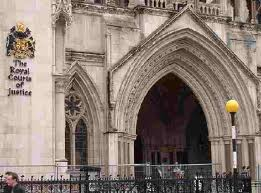In its decision in Secretary of State for Business, Energy and Industrial Strategy v PAG Asset Preservation Ltd and MB Vacant Property Solutions Limited (2019) EWHC 2890 (Ch), the High Court refused a petition by the Secretary of State to wind up the two defendant companies on public interest grounds. The two companies were operating rates mitigation schemes for vacant properties. These schemes took advantage of the empty rate exemption applied to insolvent businesses. The way in which the schemes worked was that vacant properties were let to special purpose vehicle (SPV) companies, those companies then becoming liable for empty rates for the properties concerned. The SPV companies were then placed into member’s voluntary liquidation, which gave them exemption from empty rates.
The Secretary of State petitioned for the compulsory winding up of the companies operating these schemes on the basis that their operation subverted the purpose of liquidations and represented a misuse of insolvency legislation, such that it was equitable to wind up the companies. In an earlier case, taken by the then Secretary of State for Business Innovation and Skills, against earlier rates mitigation schemes operated by the same individuals, the then Secretary of State had succeeded in petitions to compulsorily wind up those earlier companies, on public interest grounds.
The principal difference between the current schemes and the earlier ones, which had been compulsorily wound up, was the inclusion of a “determination premium” in the lease arrangements to the SPV’s. The effect of this determination premium was to make the owner of the vacant property liable to pay a premium to the SPV company in the event that the lease to that company was determined prior to its three-year term. This, in turn, gave the SPV companies some potential value in the event that their respective landlords might find a tenant for the properties concerned, determine the lease early, and pay the determination premium. This possibility gave the SPV’s, even in member’s voluntary liquidation, some potential value.
The High Court found that “to devise and implement a lawful scheme to avoid business rates is itself lacking in commercial probity or otherwise contrary to the public interest”. The court also found that the particular device used by these schemes “even though that is achieved through the intended creation of a lease containing a term (the determination premium) which artificially creates an asset” could not be said to be lacking commercial probity or against the public interest. For these, and other more detailed reasons, the court was not satisfied that the Secretary of State had made out a case for the compulsory winding up of these companies in the public interest. The Secretary of State’s petition was therefore refused.
These cases are the latest in a line of challenges made by local and central government against various rates mitigation schemes, using insolvency exemptions, and other means. Most of these challenges against mitigation schemes have been unsuccessful. This leaves us to wonder whether any new government, following the general election, may consider introducing anti-avoidance legislation such as that currently being considered by Scottish Government and by the Welsh Assembly.

